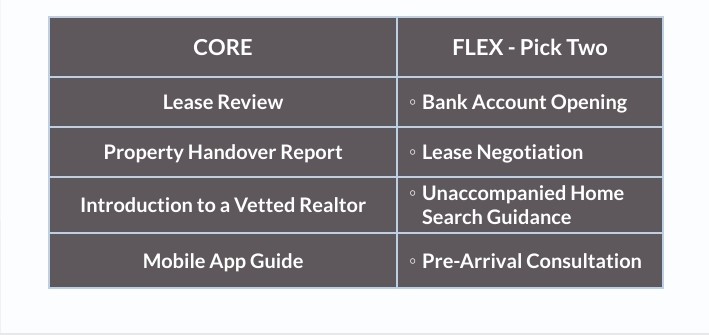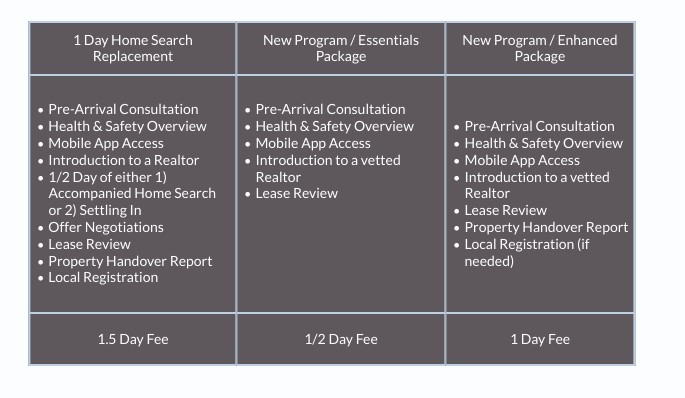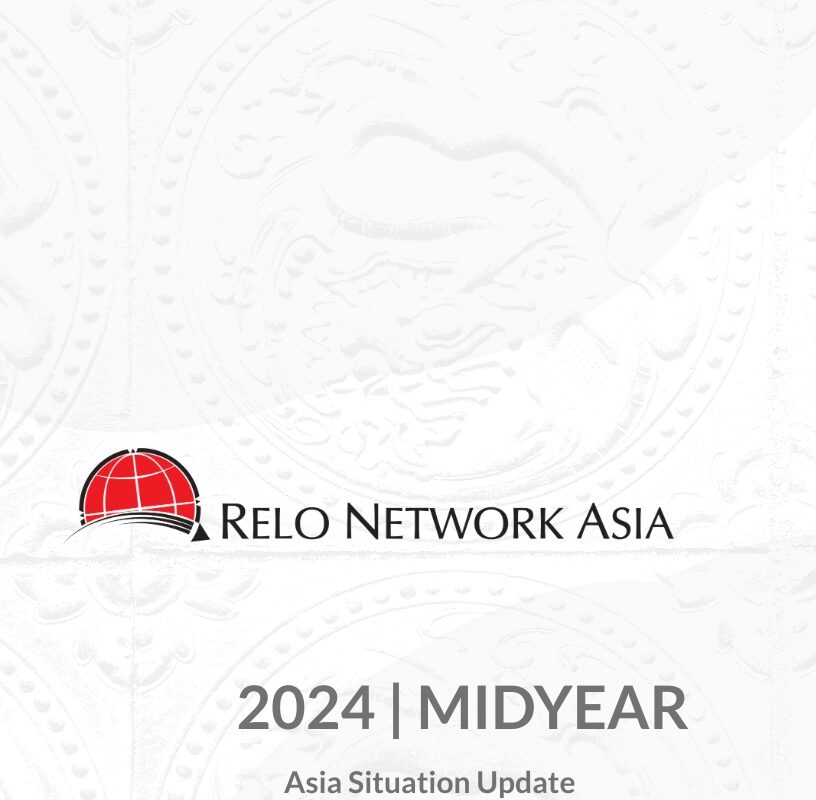The introduction of One Day DSP programs has had a negative impact all along the supply chain and to the assignee experience. Are these programs wishful thinking, or are they a new necessity that requires a better definition that once meant for a vastly different set of circumstances?
In our final installment, we offer better options to support an improved assignee experience going forward.
Part V: Alternatives and Options for Improvement
Since the late 1980’s or early 1990’s the talent mobility industry has been producing new cost-saving benefit programs. From cafeteria- style to managed lump sums, each was developed to get the right resources for a relocating employee. Over that same timeframe and for much longer, the home- finding service scope, the RFP pricing process, and the by-day delivery of destination services have not been significantly altered. The only notable change has been a reduction in the number of days allotted in the benefit package, reaching the untenable.
We should be united in the goals of ensuring the intended benefits are received, appropriately setting expectations of all parties involved, and delivering a high level of assignee satisfaction. To achieve that and to do so under today’s diversity of relocating employees will require clearly defined programs and likely new ones.
We have started to see some requests for “express” or “abbreviated” programs, but nothing has reached the critical mass yet. And nothing that the industry stakeholders have embraced. Flexibility and customization are hallmarks of Destination Service Providers who have long histories of pivoting to meet the needs of the moment.
Any solution must consider the variety of relocation budgets and destinations while weighing service satisfaction, global program implementation, and duty of care.
What works for a new hire on a rotational assignment in a destination similar to home will be insufficient for an employee going on a short- term assignment in a destination not similarly comparable.
Change the service scope to fit in the 1-day timeframe. [Time-based approach]
This solution does not require a pricing change and may be easiest to implement across locations and a global program. The defined service will hopefully include duty of care items and improve the ability to set expectations and deliver upon them.
Change the timeframe to fit a home-finding service scope. [Task-based approach]
This option prioritizes the experience based on the intricacies of the destination. Start by confirming the service scope and anticipate that each location will have its timeframe above one day or ten hours and associated costs for delivery. Again, the clearly defined service scope and right-sized support can improve the service experience.

Offer a Core/Flex Service
This option offers location-based programming and flexibility for assignees to choose services that are meaningful to them while ensuring core duty of care issues are mandatory.
Build a new program
Customize a service scope to accomplish the goals of your program. Service scopes can leverage technology for lower cost options and focus on duty of care issues. With an increased budget, the program moves from protecting assignee and company interests to easing the relocation process.

These are just some ideas. Exact programs can be built around an employer’s goals for their mobility programs. Some variation between cities will exist and require local interpretation, but to a much lesser extent than happens now and against a backdrop of a set of services to establish proper expectations.
Other items might improve the experience, increase the success, and ease implementation.
Rebrand the concepts and change the name to exclude any established expectations. Most people have experience doing a Home Search, but few have experienced destination support. Using “Express” or “Expedited” instead of the 1 Day descriptor can also be beneficial. How about a 1 Day Home Search Advisor if the timeframe is necessary? That could set the expectation for the timeframe and the kind of support to anticipate.
Give employees the option to use a lump sum or discretionary allowance to purchase more destination support if needed. DSPs are primarily B-to-C organizations, and their services are not marketed to assignees for purchase like a flat-screen TV is. Many Destination Service Providers have mobile apps that allow assignees to self-select and pay for destination support via a credit card. However, this rarely is permitted for non-DIY assignees.
As the talent mobility landscape continues to evolve, new challenges need to be addressed in terms of one-day standalone services. Innovative solutions are required to overcome these challenges. Talent mobility professionals can redefine their service scopes, incorporate flexibility, and pay attention to the naming and presentation of benefit programs to ensure a smoother relocation experience for companies and employees.
The ultimate goal is to balance cost considerations with the critical need for comprehensive support in the ever-changing world of talent mobility. The solution doesn’t necessarily require more time or money, but it does need to be clearly defined. Every part of the process has a role in making it work.
PART I: A Look Back at How We Got Here
PART II: The Theory of Pricing Impact on One Day DSP Programs
PART III: Home Search Expectations: A Challenge to the Experience
PART IV: Undefined – Dangerous Games and how They’re Navigated Now
PART V: Alternatives and Options for Improvement
Read or download the entire report.



